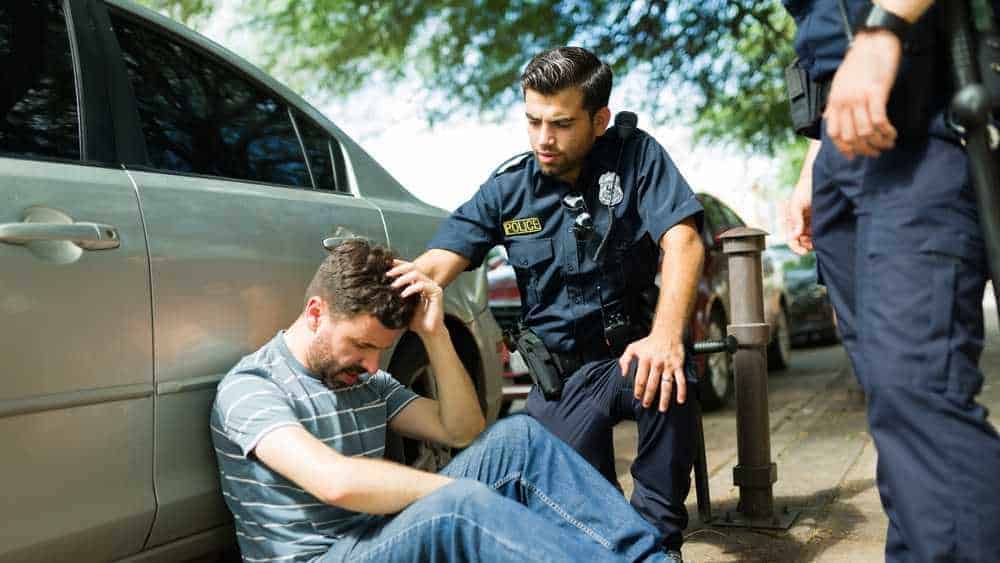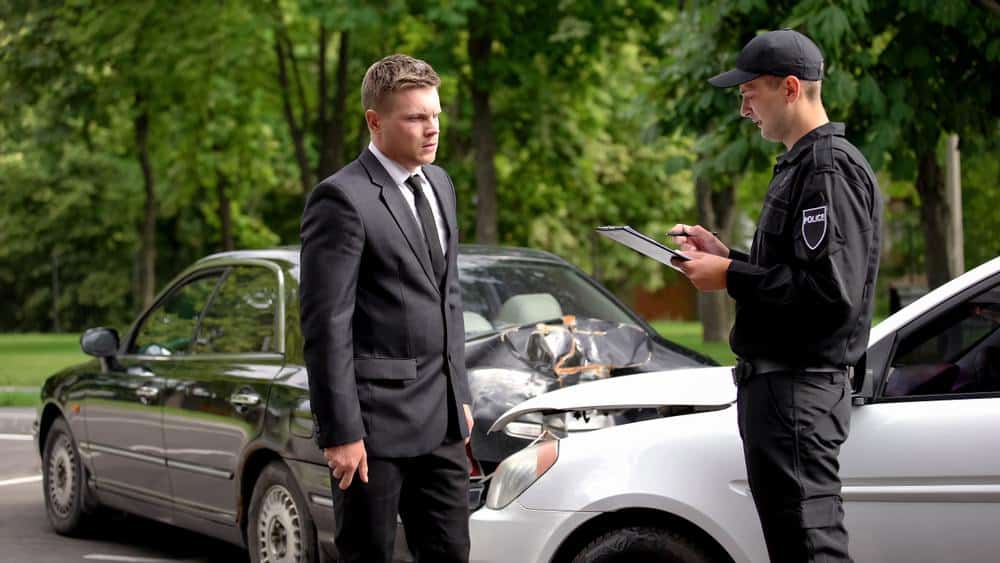Whether it’s your first time getting into a car accident or not, you should always call the police for help at the wreck. When you call the police after a car accident, they will provide a police report that serves as official documentation of the incident. The police officer who arrives at the scene will talk to everyone involved and ask whether you are okay or if you need medical attention. Calling the police after a car accident will also help if the wreck took place in a busy area or at a busy time so they can ensure the cars around you move safely out of the way. Police are just one of many first responders who may attend to the scene of a car accident to help assess the situation and make sure everyone gets the help they need. Here’s everything you need to know about what happens when you call the police and what next steps you should take after a car accident.
The Importance of a Car Accident Police Report
The immediate aftermath of a car accident can be quite stressful. Whether the wreck took place on a busy road during rush hour or on a quiet side street, there will be a lot running through your mind. You might be tempted to place blame on the other driver and start to feel defensive and frustrated about the whole experience. When you exchange information with the other driver, this is only part of the documentation that will help you as you move through the insurance and claims process. A police report for a car accident is considered an official document that insurance companies will want to see for more information about the accident. The police officer who comes to the scene can assess the accident and will write down a detailed summary of how the accident occurred. They will interview you and the other drivers involved and document any additional information that may be necessary for the police report.
What to Do after a Car Accident
A car accident can leave you feeling shocked, and you might even be injured. You may not be able to think clearly through your next steps. It helps to have a solid understanding of what to do after a car accident so your brain can kick into autopilot and get you the help you need. Here are five steps to take after a car accident to ensure you get the help you need:
Call the Police
The first thing you should do is stay in your car and call the police. The operator will ask where the accident took place, where you are, and how you are doing. It is important to provide as accurate information as possible so the police and other first responders can attend to the scene effectively. Let them know your name and what type of car you are driving, along with how many other vehicles appear to be involved in the accident. While you should always call the police after a car accident, you should never admit guilt. Stick to the immediate facts of the situation and let the police sort out the situation when they arrive.
Exchange Insurance Information
While you wait for the police to arrive, you will want to get out your driver’s license, car insurance information, and car registration. If it is safe to do so, you can also exchange insurance information with the other driver. Take a photo of their driver’s license and insurance card so you can have easy access to the information for the future. You do not have to engage with the other driver on your own if you would prefer not to; you can wait for the police to arrive to assist with the exchange of information. The police who arrive at the scene will also ask for all drivers involved to provide this information, so you can get the information at that time if you are more comfortable that way.
Take Pictures of the Scene
While the police report will include a detailed description of the accident scene, you can also take pictures at the scene to provide your insurance company with more details as needed. Take pictures of any damage to your vehicle, including scrapes, dents, and any broken pieces that might be lying on the ground. If you suffered any obvious injuries like scrapes or bruises, you can also take photos of these injuries. Pictures can be helpful later on when insurance companies determine coverage and paying for damages.
Write Down What Happened
It can help to jot down exactly what happened in your own words right after it happened. Whether you write it down on a spare piece of paper or take a quick recording for an audio description, this information can help paint a clear picture of the scene. In the hours and days after the accident, the details may become fuzzy, and you might have a hard time remembering exactly what you felt after the accident. This provides you with an accurate depiction of what was going on at the time. For example, if you suffered any injuries or notice any pain and other symptoms, make a note of those right away so you can share that with your doctor.
Wait for the Police Report
After the police attend to the scene of the accident, they will write up the official police report. You may not receive the police report the same day and have to wait a few days for it to be ready. Depending on the police department, they may provide you with a hard copy, or you may be able to gain access through an online portal. Either way, before the police officer leaves the scene, they will provide you with information on how and when to access the police report.
What Happens if You Don’t Get a Police Report?
 While you might be tempted to swap info with the other driver and not involve insurance, you run the risk of not receiving the coverage or dispensation you deserve after the accident. Here are some examples of what might happen if you don’t get a police report after a car accident:
While you might be tempted to swap info with the other driver and not involve insurance, you run the risk of not receiving the coverage or dispensation you deserve after the accident. Here are some examples of what might happen if you don’t get a police report after a car accident:
The Exchange with the Other Driver May Become Complex
You don’t want to end up getting into a heated exchange with the other driver. Tempers can flare, and frustration can cause you or others to say and do things they might regret. What should simply be a moment to exchange basic insurance information can turn into a more complex situation and pointing fingers at who was really to blame for the accident.
The Driver May Not Actually Be Insured
The other driver may give you their insurance details, but what if they are not actually insured? If you end up dealing with a driver who isn’t insured and they can’t pay for the damages, then you might end up footing the bill yourself. Your insurance rates could even go up because of a car accident with an uninsured driver. When police are called to the scene, they will provide you with a police report that you can use with your insurance company to help you get the coverage you need. From paying for damages to the vehicle to getting any health care costs covered, you will not want to pay for that out of pocket.
The Driver May Not Tell the Truth About the Accident
What if you and the driver disagree on what happened, like who caused the accident? While your account of the accident might make it obvious that the other driver was at fault, the details could become murky. If the other drivers involved don’t tell the truth about the car accident, you could end up paying for something that wasn’t actually your fault. The police report will include a detailed summary of the accident and indicate who was at fault for insurance purposes.
The Driver May Change Their Story
When you initially talk to the other driver after the wreck, they may seem sincere about taking responsibility for the car accident. However, they could end up changing their story down the line. If they speak with their insurance company or attorney, they could try to blame you for the accident instead. Getting a police report of the incident will help prevent this kind of situation from happening.
Get the Coverage You Need for Your Car Accident Injuries
When it comes to getting the help you need after a car accident, you want to make sure you also take the time to get checked out by a team of car accident doctors. At AICA Orthopedics, our team of multi-specialty doctors works together to provide you with comprehensive treatment and care after a car accident. From diagnosis through treatment and recovery, you can rest assured that the car accident doctors at AICA Orthopedics will get you the help you need. Visit an AICA Orthopedics car accident clinic near you to receive a thorough examination and get started on an individualized treatment plan for your injuries so you can recover faster and get back to your regular routines and the activities you love.





